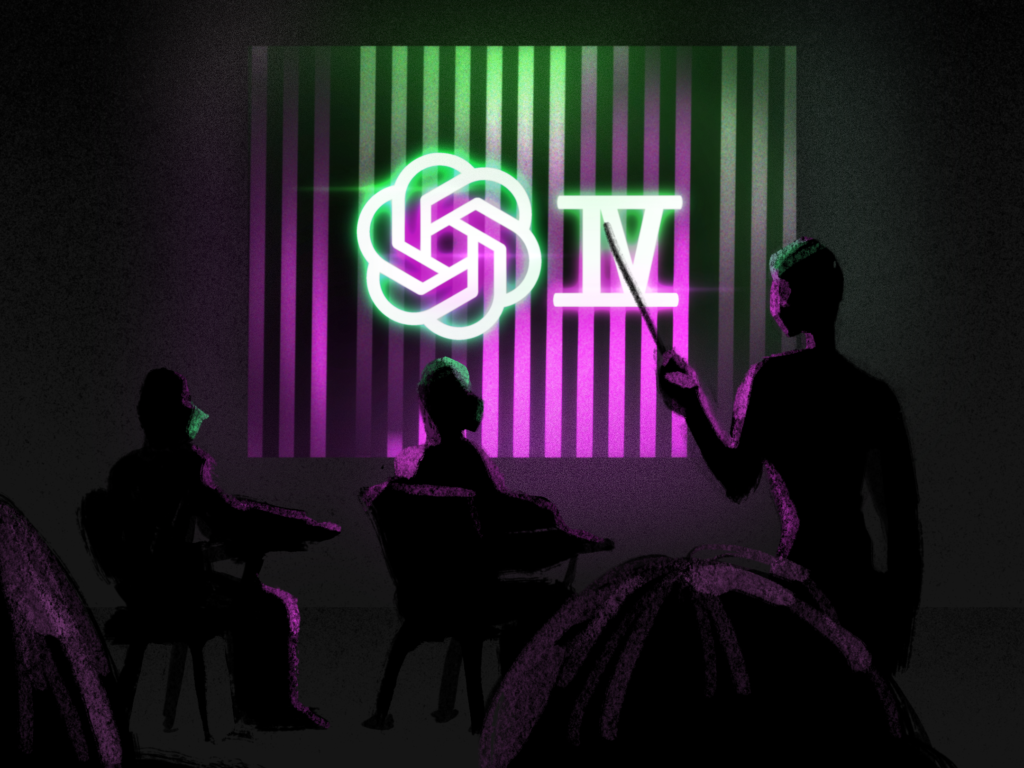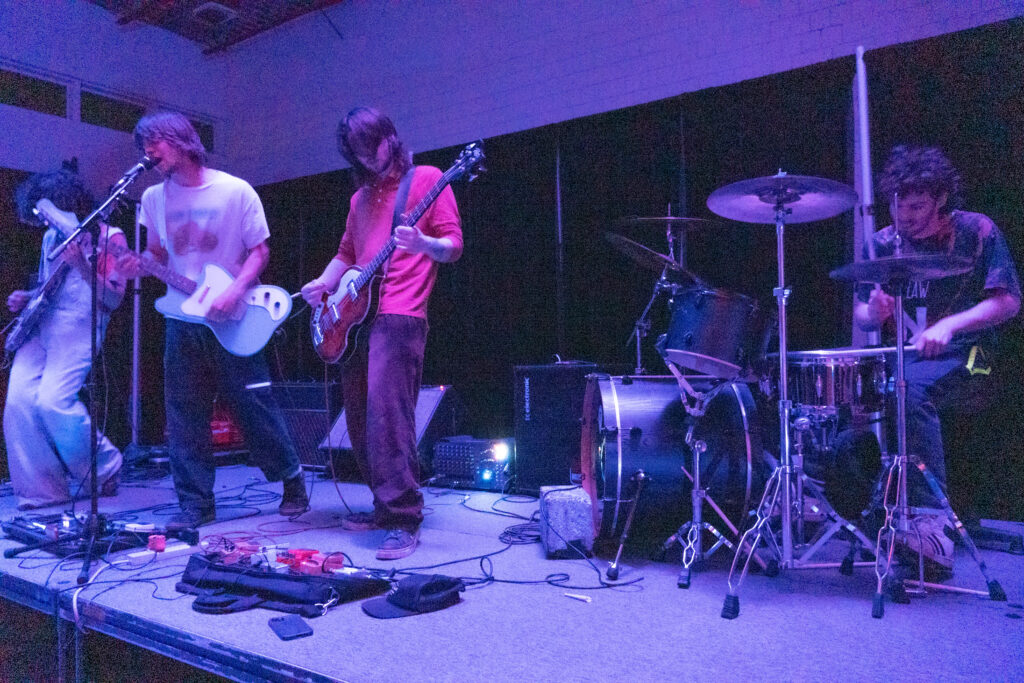By Fiona Fu ’25

When ChatGPT was released for public use on November 30, 2022, the world was forced to reckon with the endless potential of artificial intelligence (AI). Schools, in particular, faced a unique dilemma: should they integrate AI into their curriculums and embrace its educational capabilities, or shut it out completely due to the ambiguities it brings to academic integrity?
This year, the School is making a concentrated effort to not only equip teachers with the knowledge of how to use AI in their classrooms but also to create clearer expectations about how students should and should not use AI.
Opportunities for teachers to become more comfortable with this new technology began over the summer with a professional development experience called TECtonic (Technology, Education, and Contemplation-tonic). Humanities teacher and Director of Academic Technology Mr. Morgan Harris, who led the program along with Science teacher and Academic Technologist Dr. Viva Zhao, said that their goal was to let people “have an experience where they can discover how technology can actually help cultivate peace of mind,” instead of automatically associating it with stress.
“The biggest impact that I’m seeing is the shift in attitudes of some of the faculty to really reimagine what might be possible in the classroom in an embracing way,” Mr. Harris said.
This September, faculty members participated in a professional development session titled “AI Exploration” also led by Mr. Harris and Dr. Zhao. They first discussed how AI could be used as a tool in teaching, and then invited faculty to simply bring their laptops and play around with programs such as ChatGPT.
“For many faculty, it was their first time having some kind of direct experience with [it],” Mr. Harris said. “So we just encouraged people to adopt an attitude of beginner’s mind and serious play and open sharing: … especially with technology, that spirit of play is absolutely vital in discovering its full potential.”
Those who wanted to learn more about using AI in their teaching could also join an asynchronous AI reading group and an AI playground. The reading group receives a weekly article from Mr. Harris and Dr. Zhao, through which they can read and engage with each other electronically. The playground is a monthly opportunity for faculty to collaboratively explore new AI tools and ways to use them.
Some teachers have slowly begun incorporating AI into their classrooms, but they are careful to not sacrifice the important foundational aspects of teaching. “We’re just starting to delve into what AI means for us in terms of teaching students in the classroom and with academic work. I think one of the most interesting things is that it will allow us to have new ways of assessing understanding and also ways it may help students develop their own understanding,” history teacher Mr. Tom White said. “In [my] classes, we’ve talked a little bit about using [AI] to help us brainstorm ideas and also help us with our writing like a writing tutor … I do have some ideas for projects later in the term, but we’re still exploring some of those possibilities.”
Language teacher Dr. Carol Chen-Lin has also worked on effectively using AI to enhance her students’ learning experiences. “We know we cannot [teach] the way we used to or do assessments the way we were,” she said. “So we know we need to coexist. We need to live with AI. This could be a very useful tool, but we need to learn how to use it.”
Dr. Chen-Lin asks her more advanced Chinese classes to complete projects without AI on their own first before coming together in class and exploring using AI together. “[It] suggests something that’s constructive, which could be used in our essay writing or with our projects,” she said. However, she limits these exploration opportunities to higher-level classes because “we still need to teach students knowledge.”
In addition to aiding her students with their learning, Dr. Chen-lin has also found AI tools like ChatGPT to be helpful with mechanical preparation work, like compiling vocabulary lists, which gives her more time to find interesting resources for her students.
The advent of AI in schools has also created some questions about academic integrity. For students like Max Lo ’25, different policies about using AI in different classes can be confusing. “It’s weird because it might be totally encouraged in one class, and then become something that can get me in serious trouble in another,” he said. “I wish there was a more consistent policy about AI usage throughout Choate.”
Mr. White also believes that it’s the responsibility of the School to ensure that the rules are laid out. “It’ll be important for teachers and for the School to be really clear about what’s allowed and what’s not allowed,” he said. “When it’s confusing for students, that can create real problems.”
A Generative AI Steering Committee, led by Director of Studies and English teacher Ms. Ellen Devine, has been formed to mitigate many of these issues. Director of Curricular Initiatives and Science teacher Mr. Deron Chang, a member of the committee, described it as an institution-wide “policy building committee to consider how we should best utilize AI because we want to use it.”
The committee would discuss how AI relates to the Deans’ Office, the academic departments, the administrative offices, writing college recommendations, and writing term reports. “We won’t have answers to everything, but you certainly will have a roadmap for what we expect to be able to do,” Mr. Chang said.
Another member of the committee, Head of Student and Academic Life and Humanities teacher Ms. Jenny Elliott, said, “I am optimistic that Generative AI could help us achieve a number of our goals more effectively, and I am certain that the discussions ahead will illuminate how our core value of integrity must remain at the center of our efforts.”
There are still many unanswered questions about the implications of AI, but students and teachers alike are excited by the opportunities it presents.
“I think learning to use AI is definitely going to be very helpful,” Ella Morris ’25 said. “I definitely think it’s one of those things that’s going to keep progressing and keep getting better, and it’s going to be integrated more into our everyday life. And I think learning how to understand it when you’re younger — that’s going to be important.”
Despite its exciting possibilities, use of AI tools and resources is currently only allowed for academic work if explicitly authorized by teachers. Otherwise, it is considered unauthorized aid. Ms. Elliott recommends that students be proactive in asking their teachers if they are ever unsure about any of those expectations.



